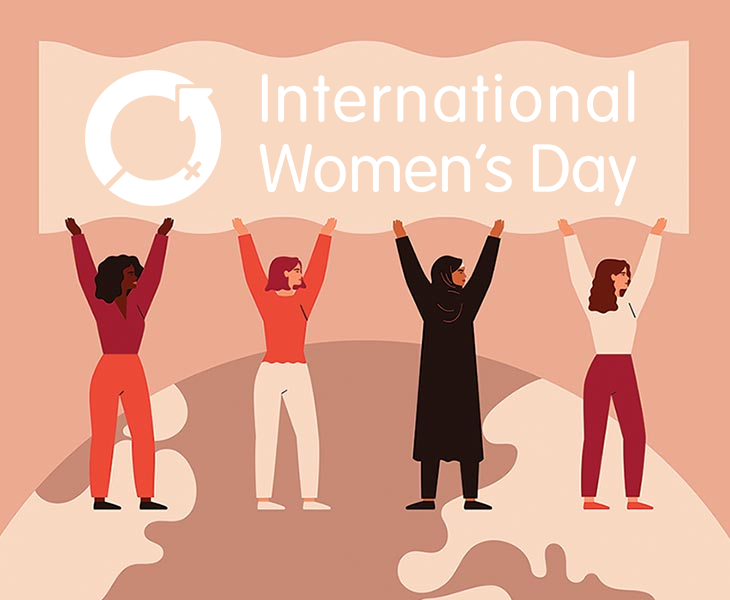What does breaking the bias mean for us?
Our gender cannot be separated from other parts of our identity, as young women growing up in East London, you come from many different races, cultures and religions.
The biases you have to break as a woman cannot be separated from these things.
They cannot be separated from the biases that surround being a teenager from East London, the biases people have when they hear your accent, the biases of being a second or third generation woman, the biases that come with being a black woman, or Asian woman, or Eastern European woman, the biases that come with being a Muslim woman.
Other people’s perceptions of parts of your identity are something that you will have unfortunately have to contend with your whole life.
But let us try and change the perspective.
All of those parts of your identity that others may view negatively or as things that limit you are actually your greatest strengths.
All of those parts of your identity that others may view negatively or as things that limit you are actually your greatest strengths.
What do I mean by this? Well, many of us come from collective cultures where decisions are made collaboratively and importance is placed on the wellbeing of the whole family above the individual.
This may have impacts when you are looking at your future. Some of you might not be able to move away for university although others around you are. However, instead of looking at this as a limitation, we can look at this positively, while studying you will have family support, you will not have to think as much about cooking and cleaning and paying bills as if you were living on your own, this means you may have more time to dedicate to studies and doing well.
Another example could be the impact of following your faith, some people could see fasting in Ramadhan or having to wake up early for fajr throughout the year as a weakness; something that is disruptive and stops you doing your best. While for another person that connection with their faith is their source of strength, giving them the motivation and clarity of mind needed to focus more on exams and assignments
The International Women’s Day Goals are ambitious and global they tackle women’s treatment in the workplace, in healthcare, in creative industries. Where is your part in all this what can you as one young person do?
How can we break the bias in our own lives and the communities around us?
My answer is to start small. Breaking the bias starts with the small things you see around you every day.
Breaking the bias starts with the small things you see around you everyday.
You are the experts on your own lives, as adults we need to listen to you to understand what effects you and the things you are going through. I am reminded of the #Handsofmyhijab campaign that school and university students started in France.
They experienced something they felt was wrong and tried to deal with it in a positive way to raise awareness. Breaking the bias always is about raising awareness through real stories of real people.
Breaking the bias is about raising awareness through real stories of real people.
Aim to just help one person at a time, to inspire people and demonstrate to them what they can achieve, through your actions and your words.

We often look for role models, and we look internationally or at people who seem far away from us, but there are many role models within our immediate communities, who have done incredible things that may not get media attention. Your parents and families have overcome many biases in their lives, have you ever talked to them about their experiences and how they went about it?
Aim to just help one person at a time, to inspire people and demonstrate to them what they can achieve.
So talk to those around you, get advice from the right places, use opportunities in school and the wider community to have your voice heard in a positive way. You might not think things you do will have big effects but remember – a big change always starts with a small drop, you are our future and if you bring all your drops together it will cause a flood that cannot be stopped.
a big change always starts with a small drop, you are our future and if you bring all your drops together it will cause a flood that cannot be stopped.
